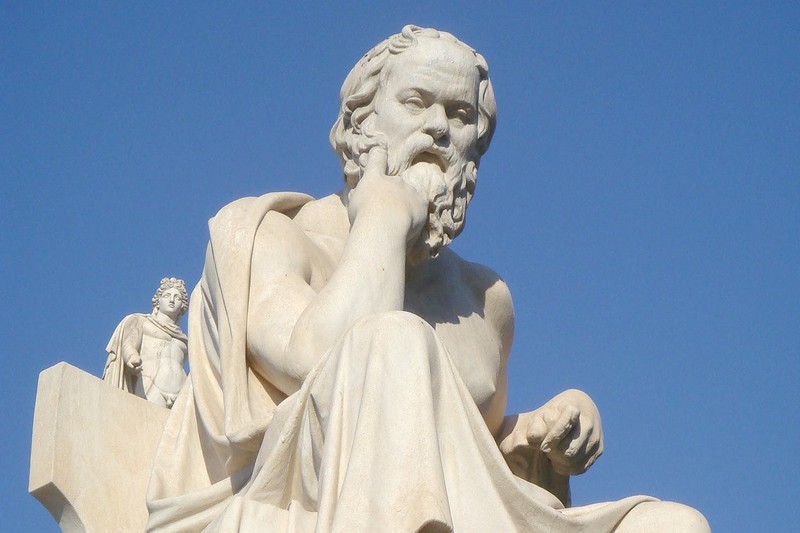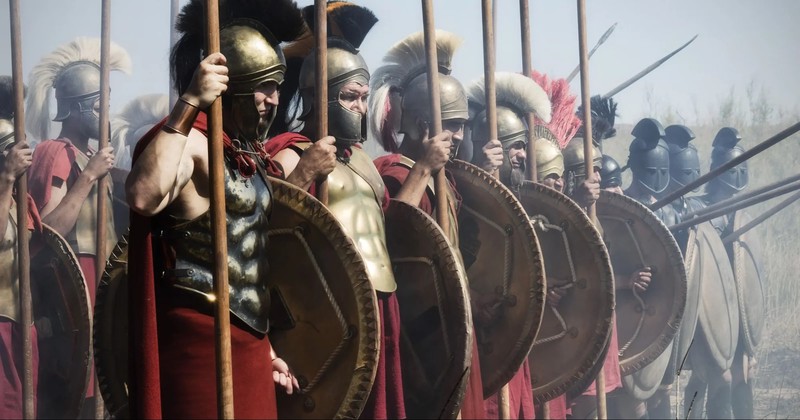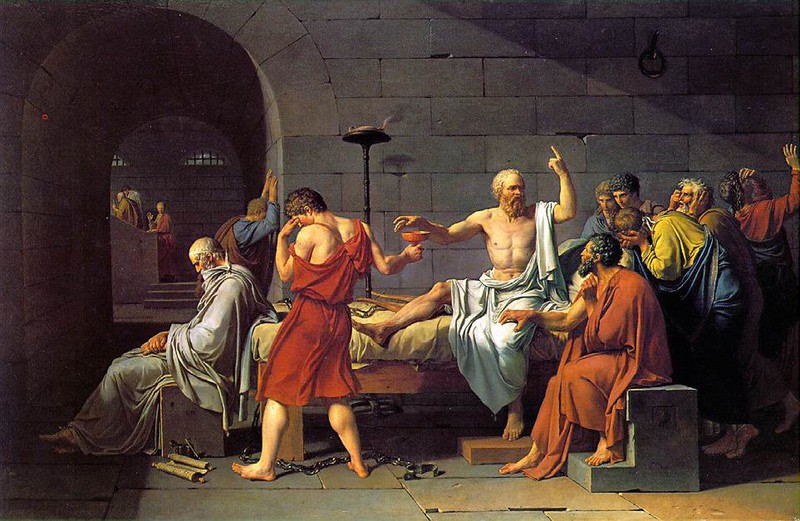
In this section I will make an ambitious attempt – I will analyze the ideas of philosophers in the most popular manner.
Philosophy helps us to form a picture of the world. Why are philosophers and their opinions important? They are needed not just to show off erudition in the company of friends. Philosophers thought about the most important questions of existence: how does the world work, where did man come from and what is his purpose? How do we look at this world at all and what can we hope for?
By studying philosophy, our own view of the world becomes more mature and more reasonable.
I'll start with an analysis of the philosophers of ancient Greece. In fact, all the key ideas about our world were invented there. In the future, humanity simply refined and developed them.
Socrates is one of the most popular and frequently mentioned philosophers of ancient Greece. And not without reason. In fact, it was from Socrates that philosophy began.
How a cool fighter became a philosopher?
A little bit about who Socrates is. He was born in 469 BC in the family of a sculptor. Since childhood, he was fond of art. He was an excellent fighter - he served in the army as a hoplite. Hoplites are the basis of the ancient Greek aria, they are heavily armed infantrymen. With a round shield and a spear, they skillfully fought in formation.

At some point, he became interested in oratory - at that time a popular entertainment in ancient Greece. The speakers at that time had their own duels, as they would say now – battles. Two speakers came out and defended their point of view, trying to entice the crowd to their side. Socrates turned out to be talented and quickly rose to an extra-class speaker – he easily defeated all opponents in disputes. It was Socrates who deduced the "three yes" rule, which is still effectively used by all speakers. Say two obvious theses that everyone will agree with. And say the third thesis. Even if it is controversial, after two "yes" it will be easier for the majority to agree with it.
When tyranny reigned in ancient Greece, Socrates fought against it. He openly criticized tyrants and defended those convicted under political articles. Of course, those in power could not help but pay attention to this – Socrates was too convincing and popular. He was accused of not honoring the gods and corrupting the population. It was very easy to fabricate evidence in those days and find "witnesses". Socrates was sentenced to death. As a free citizen of Athens, he took the poison himself.
The Philosophy of Socrates
Socrates' writings have come down to our days only in the retelling of his disciples.
Socrates believed that reason and the ability of a person to think rationally were at the forefront. Initially, human nature is kind. If a person does evil, he simply does not know what good is. So you just have to show him and prove it! (Eh, Socrates, you have shown by your struggle with tyrants that correct rhetoric and logic are not always the key to success)

A person needs to develop intellectually. Culture should educate and work for the development of intelligence. As a result, humanity is waiting for success.
Here are the main theses of Socrates:
Evil is ignorance of good;
None of the people initially wants evil and will not do it of their own free will;
Virtue is knowledge.
Socrates had a special relationship with knowledge and science. Unlike most people of his time, he was well aware of how little people still know.
To do this, he used an interesting analogy.
I drew a small circle in the sand and said - this circle is my amount of knowledge when I was a boy. And everything outside the circle is unknown. Next to him, he drew a much larger circle and said - this circle is what I know now. "See how the boundary of the circle with the unknown has grown? It turns out that I have become even more "not to know"!".
Hence the famous paradox of Socrates: "I only know that I don't know anything." It is logical – over the years we become more and more aware of how much we don't know yet.
Well, the ideas of Socrates were actively developed and not only in Ancient Greece. Remember the culture of the New Time. Great discoveries in physics and the development of technology have given rise to a belief in progress. H. G. Wells, Jules Verne – these authors made science and technological progress popular. They believed that their development would save humanity.
Is it so? Personally, I don't have a definite answer. Technology has led to terrible world wars. There are threats of bacterial infections, the rise of artificial intelligence and man-made disasters.
On the other hand, people have really become smarter and better compared to, say, ancient tribes. In life, we try to solve conflicts not only by force. Much more often we resort to dialogue, make joint decisions. And only reason, science and technology will save us from threats from outer space - huge meteorites and the extinction of the Sun after billions of years.
And what do you think, does reason lead to good and is it useful for humanity?
Comments